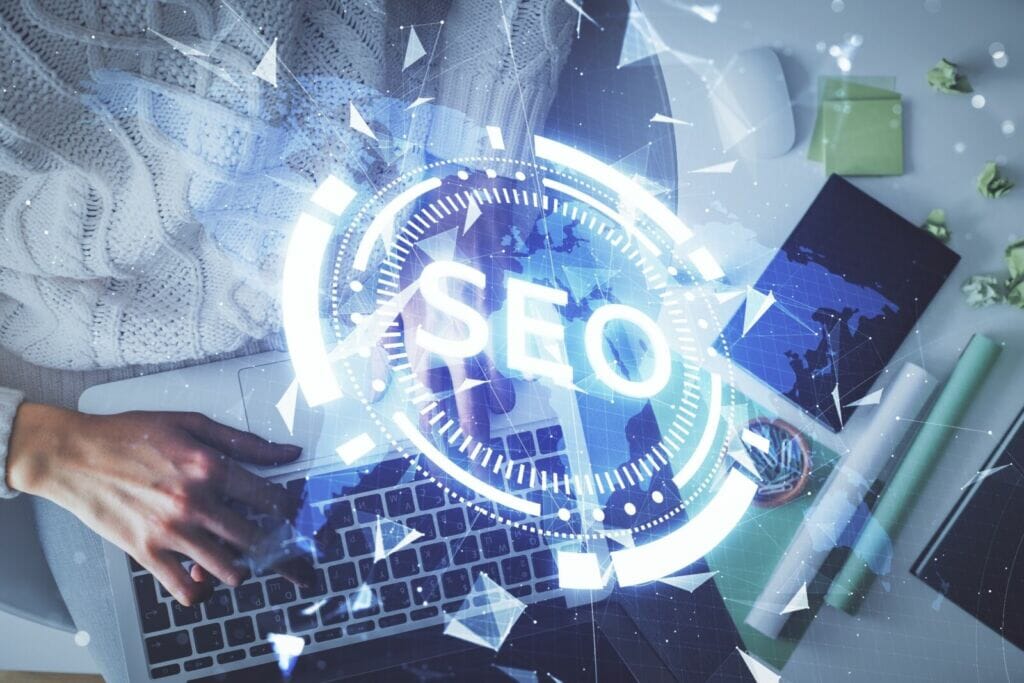When it comes to digital marketing, there are two notable ways for businesses to drive online growth and increase their reach and sales: Search Engine Optimization (SEO) and Pay-Per-Click (PPC) advertising.
These very different approaches both aim to improve a business’s online visibility and attract potential customers. Still, they each have unique quirks, advantages, and drawbacks, which can leave many business owners unsure which one they should choose. There is often no wrong choice, but it instead depends on the business’s objectives in the near and distant future.
In this article, we’ll examine the intricacies of SEO and PPC, exploring how each approach can impact business revenue and which might be the most effective driver in the long run.
Understanding SEO
As you might already know, SEO is the process by which a business’s website will improve its online organic visibility and rankings on search engine results pages. There are many ways to achieve this, but it will often involve techniques like keyword research, content creation and optimization, and technical improvements.
The ultimate goal of almost all SEO activity is to improve a website’s relevance and authority in the eyes of the search engine, which is often Google. This allows more organic traffic to reach the website, resulting in more sales or leads.

Pros of SEO
Cost-Effective
Once SEO is set in motion, there are low ongoing costs as the changes will have a lasting impact on a website’s performance, unlike PPC, which will require ongoing payments to the advertising platform.
Increased Credibility
A strong SEO profile can positively impact your brand’s reputation and perception from potential customers. Websites at the top of Google are generally seen as more trustworthy because luck alone does not achieve a high ranking.
Sustainable Results
While SEO can be a slow burner, the traffic generated by this activity can continue for much longer than it’s worked on. SEO is generally considered a sustainable activity that you will still see having an impact much further down the line.
Cons of SEO
Time-Consuming
Achieving positive results with SEO does not come easily and requires a lot of time and effort to get right, which is why there are many specialist marketing agencies now appearing. For in-house teams, more sales-heavy activity will often take priority.
Uncertain Outcomes
The algorithms are changing on a daily basis, which can make it challenging to plan impactful activity and forecast accurate results. But it’s not an impossible task, just an uncertain one.
High Competition
SEO is incredibly competitive, which means that you need to invest if you want to positively impact your website’s performance. Many businesses will be vying for the same spot at the top of Google’s results page — a simple search for “project management tool” will show results for Trello, Asana, and Monday, all near the top.
Ever-Evolving
SEO is always changing and evolving, which can make understanding Google’s algorithms a challenging task. This can make it very difficult for in-house teams to give SEO the time and energy it requires, which is why it is recommended you hire a reputable digital agency like The Media Image to do the work for you.
Understanding PPC

PPC advertising involves placing ads on search engine results pages and paying a fee for each user who clicks. This is unlike SEO, which is aimed at increasing your organic ranking. While this does come with a cost, PPC advertising allows for more accurate forecasting that can give businesses much more confidence.
Pros of PPC
Immediate Results
PPC advertising is generally seen as a better sales tool because it can generate traffic instantly and increase sales or leads much sooner. This can make it a much more appealing activity for businesses looking to achieve a relatively quick boost to online leads or sales generation.
Targeted Advertising
While SEO keywords can help you target the right audience, PPC advertising allows for more precise targeting based on demographics, location, and interests. For niche industries, this can enable businesses to reach the right people.
Measurable ROI
Unlike SEO, which (often incorrectly) is seen as being a shot in the dark by many, PPC advertising produces detailed analytics, allowing for more targeted campaign optimizations.
Cons of PPC
High Costs
Online advertising isn’t cheap, with Wordstream reporting that legal businesses are paying an average of $6.75 per click while consumer services come in at $6.40, which is significantly more than most others. While these high click costs are associated with increased revenue from sales or leads, this can be a barrier to entry.
Ad Fatigue
Ad fatigue is a real issue that has been increasing over recent years. It is illustrated by many users becoming increasingly immune to paid posts. This can result in diminished returns for marketers who are unable to refresh their ads regularly.
Limited Lasting Impact
While SEO has a lasting impact for much longer than the activity takes place, PPC stops impacting performance the moment the ads are stopped. While they are great at getting more sales or leads, PPC ads are a continual investment.
Driving Business Revenue

SEO is often regarded as the better investment for businesses wanting to deliver more consistent results over a more extended period. In contrast, PPC has gained a reputation as the better solution for businesses only interested in driving traffic with immediate results.
As we indicated earlier, SEO is much harder to forecast. There is no concrete consensus on what ‘good’ looks like, but we can use some case studies to provide insights. Profitworks, as reported by Demand Jump, estimates that its SEO services have a return on investment (ROI) of 275%, while Terakeet states that its SEO ROI sits in the 500%–1,220% range.
According to Click Intelligence, the average return on ad spend (ROAS) for PPC advertising is 200%, which means that the campaigns will generate twice as much as they incur in advertising costs paid to the platform. While this may seem low, many advertising agencies will aim for a ROAS of 400%–500%, making this a much more worthwhile activity,
Planning Your Activity
Both SEO and PPC can drive business revenue, but their effectiveness depends on budget, goals, industry competitiveness, and time frame. SEO offers long-term sustainability and credibility but requires patience and ongoing effort to see significant results. At the same time, PPC often provides immediate visibility and results but at an ongoing (and fluctuating) cost.
If you can find the right balance of organic and paid activity, you can experience incredible results.




